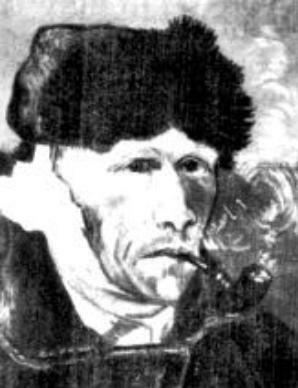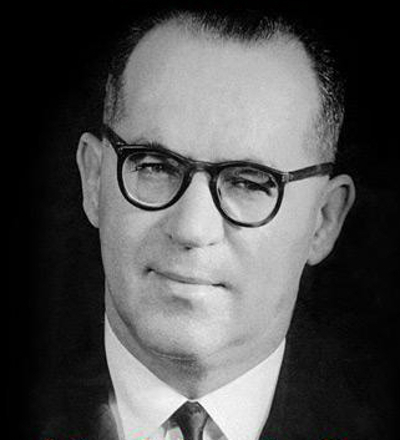The irony is a figure of speech that consists of suggest the opposite of what is claimed. It can also be understood as a mockery. In both cases, to be identified, she depends on the context (of the situation) and the interlocutor's knowledge. In oral language, the enunciator's gestures are also important for their understanding. There are basically three types of irony:
Oral or verbal;
Dramatic, theatrical or satirical;
Of situation.
Read too: What is Metonymy?
Types of Irony and Examples
oral or verbal irony
When the enunciator's statement contradicts your intention.
Example 1
Context: Laura pushes Giovana to get on the bus first.
Giovana's ironic speech: You really are very kind!
So when Giovana says that Laura is very kind, she actually means to say otherwise.
Example 2
Context: Pablo is a muscular man, and Leandro says he's going to hit him.
Pablo's ironic speech: I'm scared to death of you!
So when Pablo says he's scared to death of Leandro, he actually means to say otherwise.
Do not stop now... There's more after the advertising ;)
Dramatic, theatrical or satirical irony
It's a kind of irony specific to the theater and of the literature. It is, therefore, a form of dialogue with the public or readers, who must understand the irony. Thus, it occurs when the character of a narrative or play is unaware of some information that is known to readers or audiences.
An example of this kind of irony can be taken from a novel by Machado de Assis: Quincas Borba (1891). As can be seen in this excerpt that narrates the death of the protagonist:
"A few days later he died... He did not die subject or defeated. Before the agony began, which was short, he put the crown on his head, — a crown that was not, at least, an old hat or a basin, where the spectators felt the illusion. No sir; he picked up nothing, lifted nothing and girded nothing; he alone saw the imperial insignia, heavy with gold, brilliants and other precious stones. The effort he had made to lift half his body didn't last long; his body fell again; his face perhaps retained a glorious expression.
"Keep my crown," he muttered. To the winner...
The face became serious, because death is serious; two minutes of agony, a horrible grimace, and the abdication was signed.”
The character is unaware that he is crazy, but the reader and reader know it. They also know that the protagonist believes he is Louis Napoleon Bonaparte. Hence the ironic tone of frank mockery, especially when the narrator says that “the abdication was signed”. To abdicate is to renounce something, in this case, the post of emperor that the character thought he would occupy.
situation irony
when do you get an opposite result to the desired in a situation. An example of this kind of irony involves the famous sinking of the Titanic. Supposedly, as there are no records about the fact, the ship builder he would have said the following sentence:
Not even God can sink the Titanic.
Beliefs aside, if that sentence was actually said, it preceded an undesirable situation irony, because on April 15, 1912, the ship hit an iceberg and sank, killing about 1,500 people. So when the shipbuilder said that phrase, he was claiming that his ship would never sink; but, as we know, the opposite happened.
See too: What are thought figures?
What is sarcasm?

Furthermore, in addition to these three main types, there is also the sarcasm, which is kind of offensive irony.
See the following sentence:
You are very beautiful, it even looks like a anteater.
In this example, the enunciator, from offensive form, belies his original statement – that is, “You are very handsome” – by saying that the interlocutor looks like an anteater.
solved exercises
Question 1- (Enem)
Big city
How beautiful, Montes Claros.
How Montes Claros grew.
How much industry in Montes Claros.
Montes Claros grew so much,
it became so notorious,
prima rica from Rio de Janeiro,
which already has five favelas
for now, and more promises.
Carlos Drummond de Andrade.
Among the expressive resources used in the text, the
a) metalanguage, which consists in making language refer to language itself.
b) intertextuality, in which the text takes up and reworks other texts.
c) irony, which consists in saying the opposite of what is thought, with critical intent.
d) denotation, characterized by the use of words in their proper and objective sense.
e) prosopopeia, which consists in personifying inanimate things, giving them life.
Resolution:
Alternative C.
The irony is present in the text when the lyrical self seems to praise Montes Claros, saying: “What a beauty, Montes Claros”, “it became so notorious a city”, “prima-rich from Rio de Janeiro”. However, in the end, he claims that the city already has five favelas, for now, and will have more in the future. So the compliments were just ironies.
Question 2 - (Enem)
Comics sometimes use animals as characters and attribute human behavior to them. The cat Garfield is an example of this fact.

Source: Life and Art Notebook, People's Newspaper, Strength.
Van Gogh, Dutch painter born in 1853, is one of the leading names in world painting. The table below is his.

the 3O comic book suggests that Garfield:
a) doesn't know everything about art, that's why he makes the suggestion.
b) believes that every painter should do something different.
c) argues that in order to be a painter, one has to suffer.
d) knows the story of a famous painter and uses irony.
e) believes that its owner has an artistic tendency and, therefore, makes the suggestion.
Resolution:
Alternative D.
In the third comic, when Garfield says “Cut off an ear,” he's referring to Van Gogh. In this case, the irony becomes a mockery. As Garfield thinks its owner has no talent, he plays with the possibility of this becoming a famous painter if he cuts off an ear, as that would be the only way he can resemble a large painter.
Question 3 - (Enem)
TEXT I
Where is the honesty?
You have a shining palace
Have jewelry and servants at will
Without having any inheritance or relatives
He only drives in the city...
And the people asks with malice:
Where is the honesty?
Where is the honesty?
Your money is born suddenly
And although it's not known if it's true
Do you find on the streets daily
Rings, money and happiness...
Society hall broom
That sweeps away what you find in front of you
Promotes charity festivals
On behalf of any absent deceased...
ROSE, N. Available in: http://www.mpbnet.com.br. Accessed on: Apr. 2010.
TEXT II
A nationally recognized figure in the history of Brazilian popular music is Noel Rosa. He was born in 1910, in Rio de Janeiro; therefore, if he were alive, he would be turning 100 years old. But he died at the age of 26, a victim of tuberculosis, leaving a collection of great value to the Brazilian cultural heritage. Many of his lyrics represent contemporary society, as if they were written in the 21st century.
Available in: http://www.mpbnet.com.br. Accessed on: Apr. 2010.
A text belonging to the Brazilian literary-cultural heritage is updatable, insofar as it refers to the values and situations of a people. The actuality of the song Where is the honesty?, by Noel Rosa, is evidenced through
a) of irony, when referring to the dubious enrichment of some.
b) the criticism of the rich who have jewelry, but have no inheritance.
c) the wickedness of the people asking about honesty.
d) the privilege of some to claim honesty.
e) the insistence on promoting charity events.
Resolution
Alternative A.
The irony is present when the lyrical self says that a certain person finds rings, money and happiness on the streets daily, but suggests that this person's wealth is actually the result of dishonesty.
by Warley Souza
Portuguese teacher



